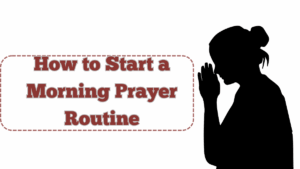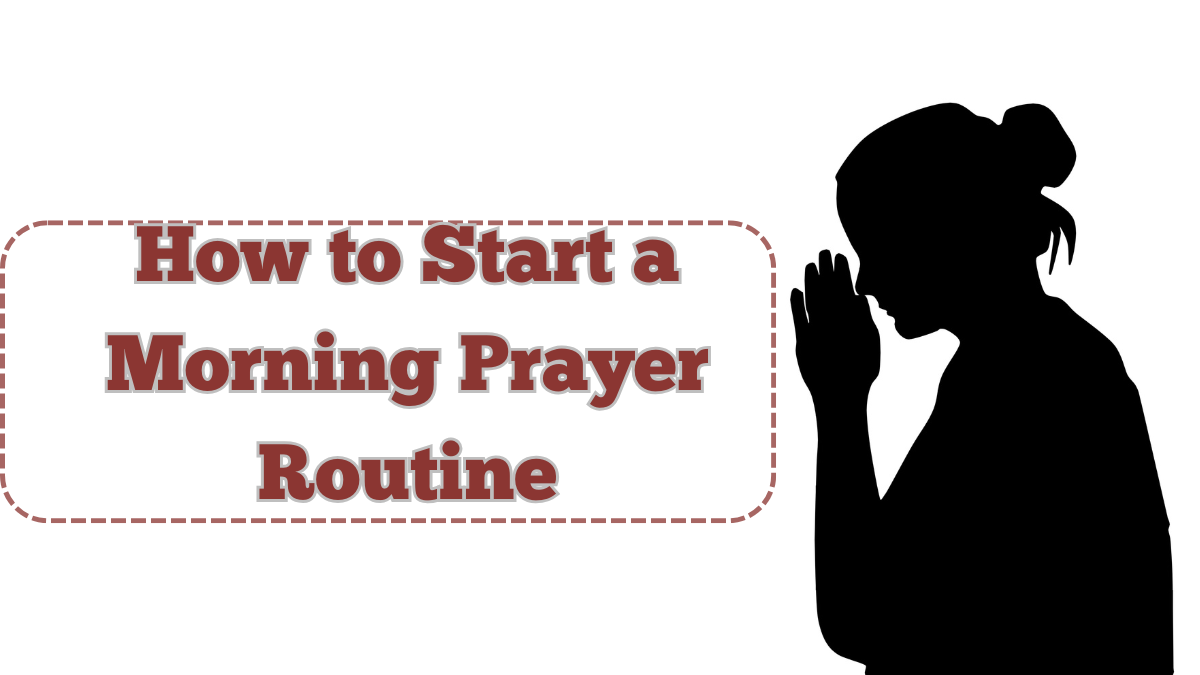In today’s world filled with noise, stress, and endless responsibilities, starting your day with a calm mind can make a significant difference. A simple morning prayer routine can help you create a space of peace and gratitude before the demands of the day take over. Whether you’re spiritual or not, dedicating just 10 minutes every morning to reflection and intention can change how you experience the entire day.
Developing a spiritual routine doesn’t require elaborate rituals. It’s about being consistent, present, and starting the day with awareness. In Indian culture, morning prayers have been practiced for centuries to build mental strength, enhance concentration, and foster positivity.

Why a Morning Prayer Routine Works
A consistent morning prayer routine sets the tone for the rest of the day. It creates a pause, a sacred moment before emails, meetings, and deadlines begin. Here’s what makes morning prayer so powerful:
-
Brings mental clarity and focus
-
Reduces anxiety and scattered thinking
-
Encourages gratitude and mindfulness
-
Helps cultivate daily peace and purpose
Research also supports that having early morning rituals, including prayer or meditation, reduces cortisol levels (stress hormone) and promotes emotional balance.
A Simple 10-Minute Spiritual Routine
You don’t need to spend hours or follow complex practices to benefit from a spiritual routine. Here’s a basic 10-minute structure that anyone can adopt:
| Time (Minutes) | Practice |
|---|---|
| 2 | Deep breathing to center yourself |
| 3 | Recite a prayer or mantra aloud |
| 2 | Reflect silently on its meaning |
| 3 | Offer gratitude and set intentions |
This routine can be done while sitting on a mat, near a window, or even in bed. You may include a candle, incense, or calming background music to enhance the experience.
Personalizing Your Morning Prayer
Your prayer habits don’t have to follow a fixed script. Choose words or chants that resonate with you spiritually or emotionally. Some prefer Sanskrit mantras like the Gayatri Mantra or Om chanting, while others find peace in affirmations or simple “thank you” prayers.
Options to consider:
-
“Om Shanti Shanti Shanti” for peace
-
Gratitude prayers for family, health, and opportunities
-
Intention setting such as “Today, I choose calm and clarity”
The goal is to be sincere, not perfect. The more heartfelt your prayer, the deeper its impact.
Real Benefits in Daily Life
Those who develop consistent prayer habits often report powerful shifts in their behavior and emotions. It helps start the day with calmness and confidence rather than chaos and pressure.
Here’s what people experience with a regular morning prayer routine:
-
Better decision-making and clarity
-
Reduced reactivity in stressful situations
-
Stronger emotional resilience
-
A steady feeling of daily peace throughout the day
Over time, this practice becomes a foundation of inner stability, helping you face challenges with grace.
FAQs
What is the ideal time to do morning prayer?
The best time is early morning, preferably during Brahma Muhurta (4 AM–6 AM), but any quiet time after waking up works for building a strong morning prayer routine.
Do I need to follow a specific religion for morning prayer?
Not at all. You can create your own spiritual routine based on personal beliefs, gratitude, or positive affirmations.
Can morning prayer reduce stress?
Yes. Starting your day with prayer calms the mind, reduces anxiety, and builds a sense of control, which leads to daily peace.
What if I don’t have time in the morning?
Even 3–5 minutes of silent reflection or deep breathing with gratitude is enough to begin the habit. Consistency is more important than duration.
How do I stay consistent with prayer habits?
Set a specific time and place. Keep a prayer journal or use a gentle reminder on your phone. The more you practice, the more natural your prayer habits become.
Click here to know more.
